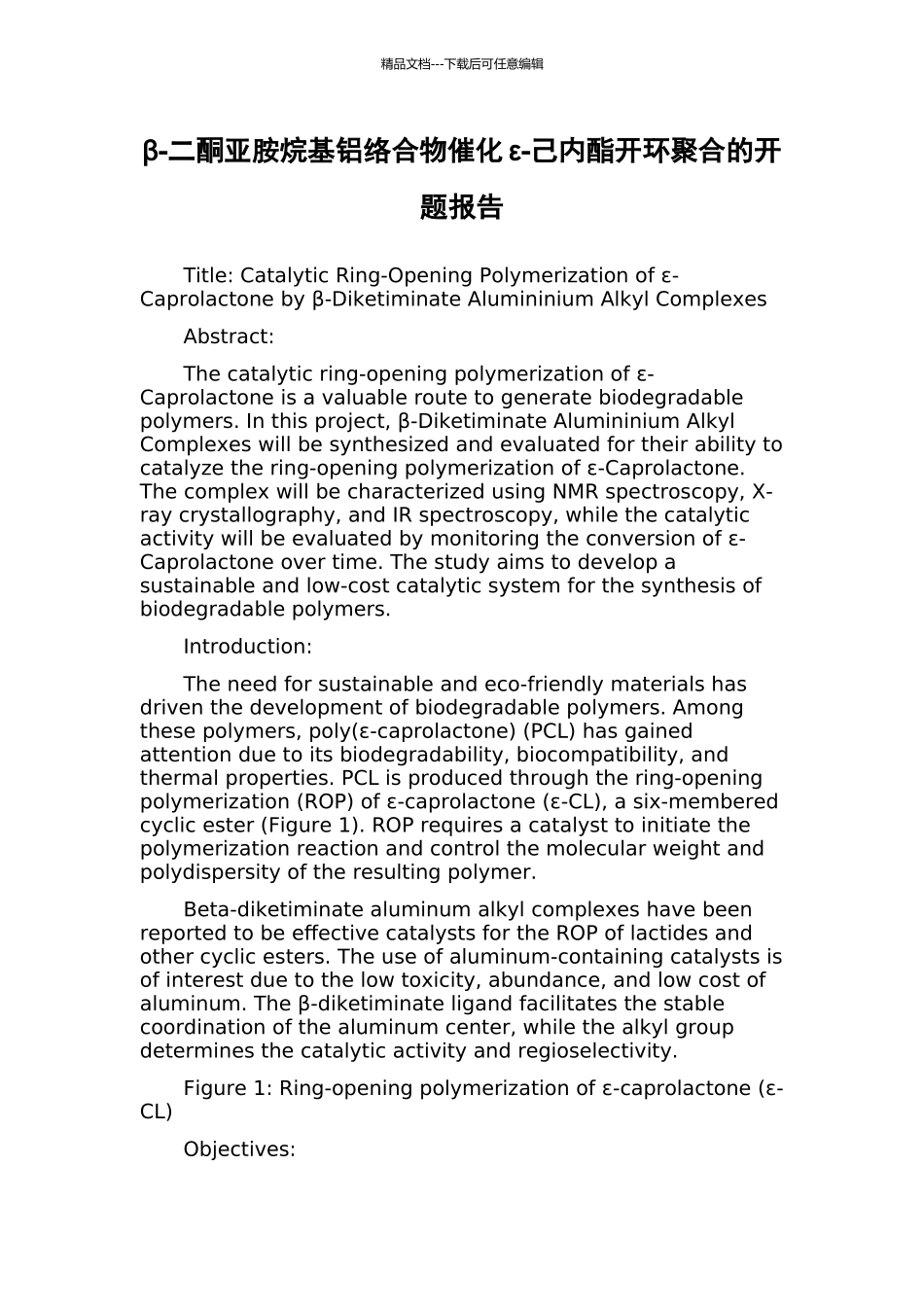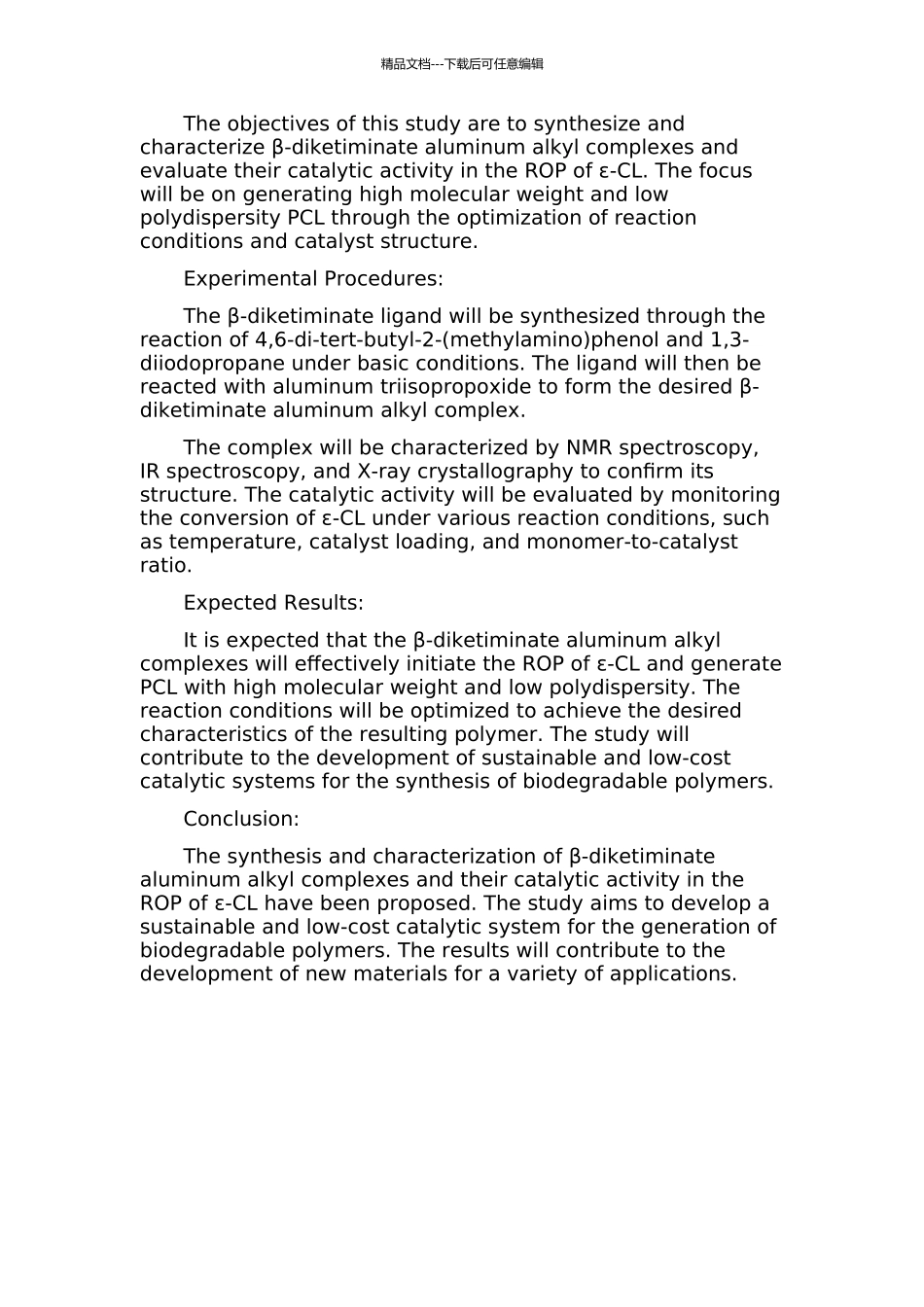精品文档---下载后可任意编辑β-二酮亚胺烷基铝络合物催化 ε-己内酯开环聚合的开题报告Title: Catalytic Ring-Opening Polymerization of ε-Caprolactone by β-Diketiminate Alumininium Alkyl Complexes Abstract:The catalytic ring-opening polymerization of ε-Caprolactone is a valuable route to generate biodegradable polymers. In this project, β-Diketiminate Alumininium Alkyl Complexes will be synthesized and evaluated for their ability to catalyze the ring-opening polymerization of ε-Caprolactone. The complex will be characterized using NMR spectroscopy, X-ray crystallography, and IR spectroscopy, while the catalytic activity will be evaluated by monitoring the conversion of ε-Caprolactone over time. The study aims to develop a sustainable and low-cost catalytic system for the synthesis of biodegradable polymers.Introduction:The need for sustainable and eco-friendly materials has driven the development of biodegradable polymers. Among these polymers, poly(ε-caprolactone) (PCL) has gained attention due to its biodegradability, biocompatibility, and thermal properties. PCL is produced through the ring-opening polymerization (ROP) of ε-caprolactone (ε-CL), a six-membered cyclic ester (Figure 1). ROP requires a catalyst to initiate the polymerization reaction and control the molecular weight and polydispersity of the resulting polymer.Beta-diketiminate aluminum alkyl complexes have been reported to be effective catalysts for the ROP of lactides and other cyclic esters. The use of aluminum-containing catalysts is of interest due to the low toxicity, abundance, and low cost of aluminum. The β-diketiminate ligand facilitates the stable coordination of the aluminum center, while the alkyl group determines the catalytic activity and regioselectivity.Figure 1:...

